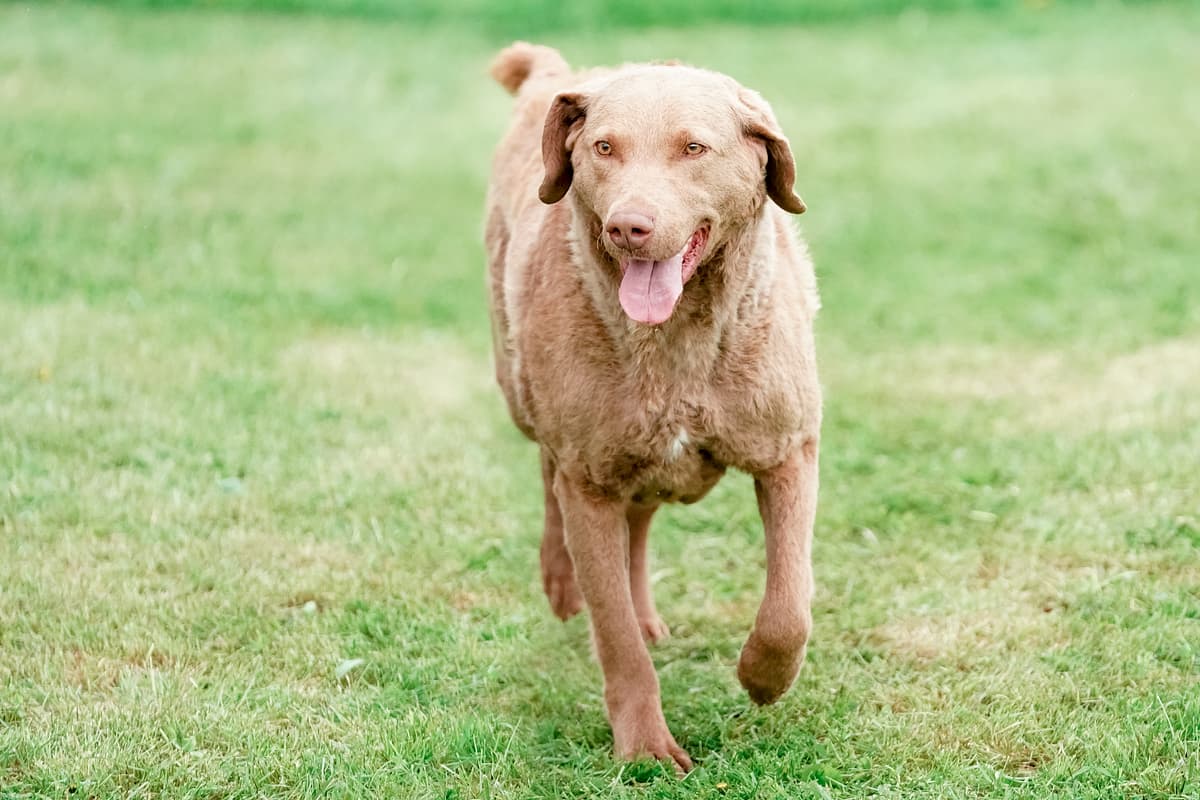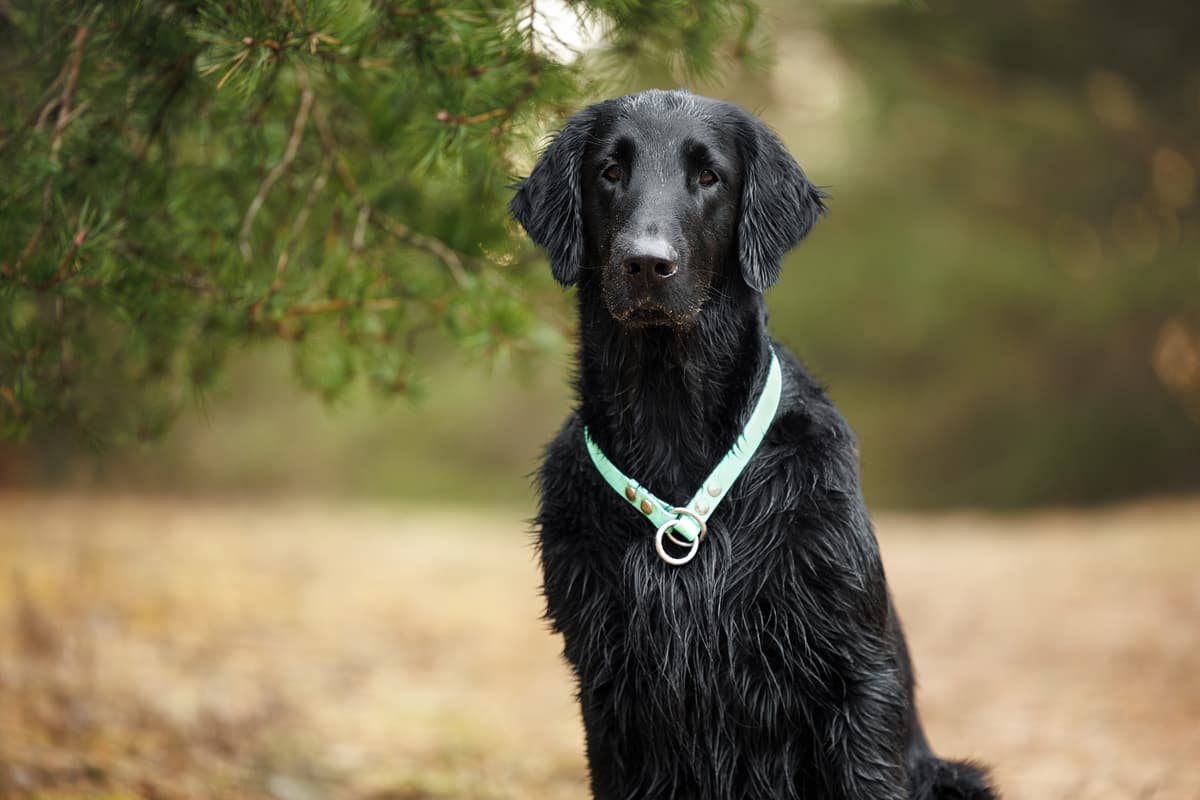Chesapeake Bay Retriever vs Flat-coated Retriever
Discover the differences between Chesapeake Bay Retriever and Flat-coated Retriever to make the best choice for your situation.
Try different breeds

Chesapeake Bay Retriever
Energetic, loyal, and intelligent, this breed thrives on outdoor adventures and strong bonds with family. Renowned for its water-retrieving skills and weather-resistant coat.

Flat-coated Retriever
A joyful, energetic, and affectionate breed that thrives on companionship and adventure. Loved for their glossy black coats and playful, optimistic spirit.
Quick comparison
Large
29–36 kg
Double coat, water-resistant
10–13 years
25–32 kg
High energy
Large
27–32 kg
Straight, dense
8–10 years
25–29 kg
High energy
Personality & behavior
Compare the personality traits and behavioral characteristics of both breeds.
Chesapeake Bay Retriever
Generally friendly but can be reserved with strangers
Highly intelligent and quick to learn tasks
Very energetic, needs regular physical activity
Enjoys games and interactive play sessions
Adapts moderately well to new environments
Flat-coated Retriever
Very sociable and enjoys human companionship
Quick to learn and responds well to training
High stamina, needs regular physical activity
Loves games, always eager to play
Adjusts well to new situations and changes
Care needs
Exercise, grooming, and daily care requirements
Chesapeake Bay Retriever
Hip dysplasia, progressive retinal atrophy
Flat-coated Retriever
Hip dysplasia, cancer
Suitability
How well each breed fits different living situations and families
Chesapeake Bay Retriever
Challenging for beginners
Needs experienced owners for training and management
Not recommended
Requires more space and exercise than most apartments provide
Excellent match
Thrives with active owners who provide regular physical and mental activities
Good companion
Tolerant and playful, but supervision is needed with small children
Can be selective
May not get along with unfamiliar dogs without socialization
Not suitable
Dislikes being left alone and may develop anxiety or destructive habits
Flat-coated Retriever
Good option
Eager to please and sociable, but needs consistent training and exercise
Not ideal
Needs more space and activity than most apartments allow
Perfect fit
High energy and stamina match active lifestyles with regular outdoor activities
Highly suitable
Friendly, gentle, and tolerant with children when supervised
Very friendly
Gets along well with other pets due to sociable nature
Prone to anxiety
Dislikes being left alone and may develop destructive behaviors
Breed strengths
What each breed excels at and their best qualities
Chesapeake Bay Retriever
- Excellent water retrieving instincts
- Strong loyalty to family members
- High intelligence and trainability
- Protective without excessive aggression
- Resilient in harsh weather conditions
Flat-coated Retriever
- Friendly with people and other dogs
- Highly trainable and eager to please
- Excellent retrieving and swimming ability
- Consistent playful and happy temperament
- Generally healthy with good lifespan
Challenges & considerations
Potential challenges and considerations for each breed
Chesapeake Bay Retriever
- Prone to stubborn or independent behavior
- Needs substantial daily physical activity
- Can be wary of strangers
- May be territorial with other dogs
- Thick coat requires regular grooming
Flat-coated Retriever
- Prone to separation anxiety if left alone
- Needs significant daily exercise and activity
- High grooming needs due to feathered coat
- Can be overly exuberant or boisterous
- Susceptible to cancer compared to other breeds
Ready to choose your perfect breed?
Learn more about each breed or compare other breeds to find the perfect match for your lifestyle.
Discover more helpful tools
Make use of our other free tools to get the most out of your pet experience
